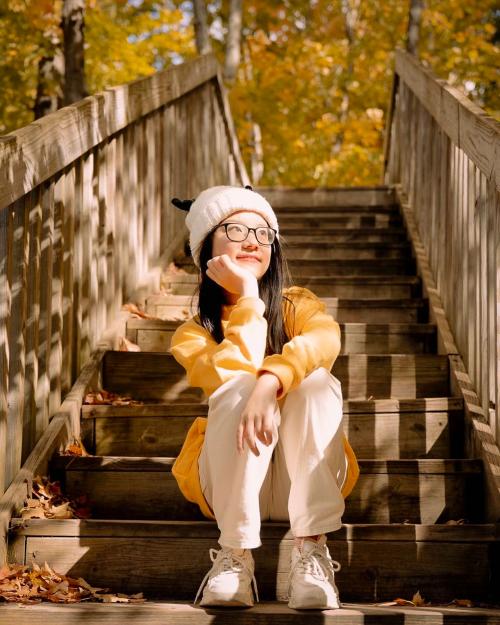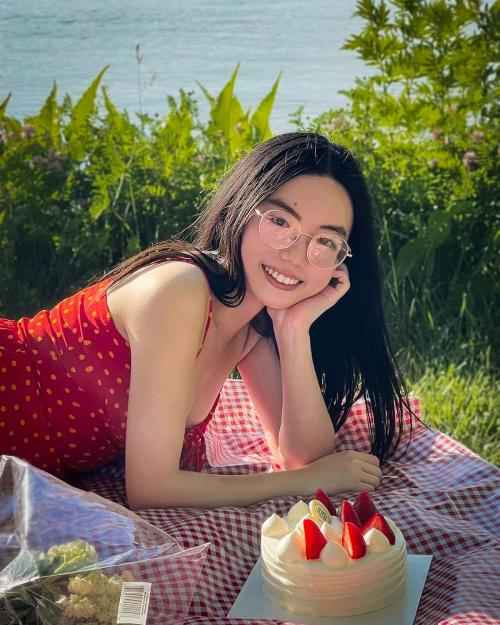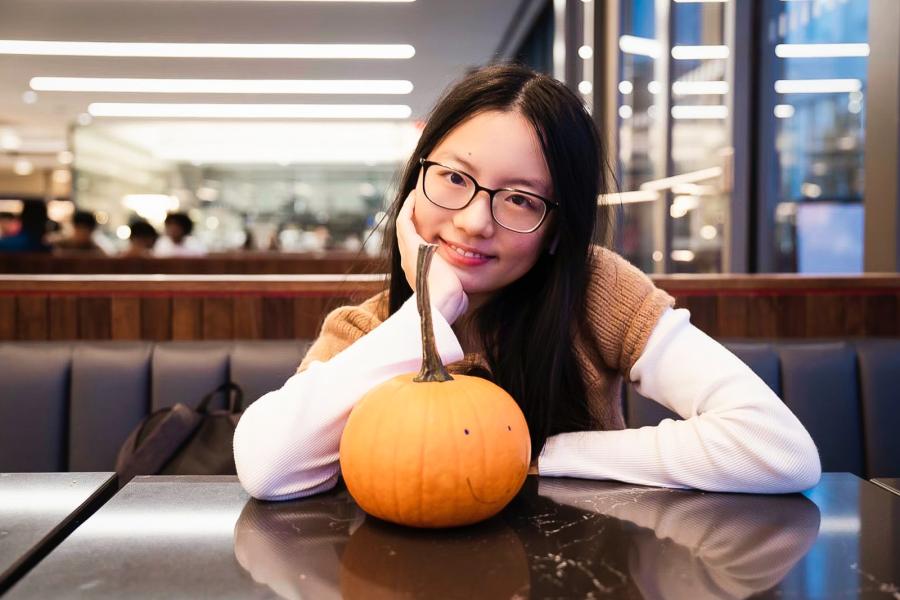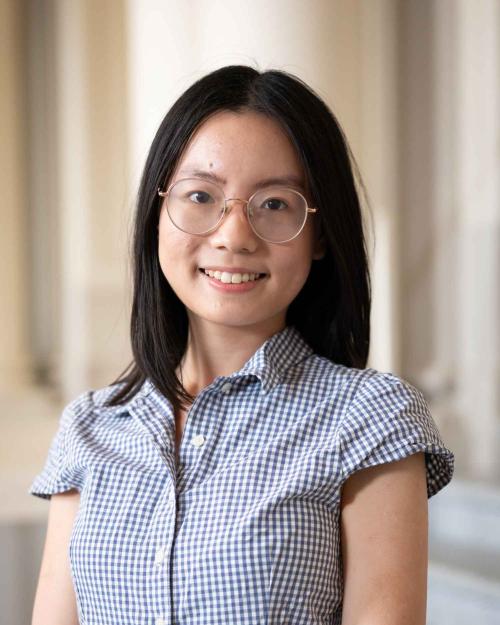Jasmine He
English
Shanghai, China
Why did you choose Cornell?

I chose Cornell because I was fascinated by its picturesque campus –– glistening lakes, trees with squirrels frolicking, a blend of ancient red-brick and modern buildings and soft white stretches of grass. While summer promises outdoor classes beneath treetops, late spring offers leisurely book reading and conversations on the slope beside a blooming Sakura tree. In autumn, I relish the slow descent of faded, crisp leaves, inhale the bittersweet aroma of maple and savor a cup of coffee at Big Red Barn. Winter, the most magical season, brings the fun of skiing and the quiet luxury of observing animals playing in frostbitten bushes. As a lover of nature and literature, and a writer at heart, I yearned for a place where I could explore my passions and live life to the fullest. Despite its expansive campus and vast research resources, Cornell’s tight-knit community offers a deeply personal experience. Moreover, my diverse academic interests find ample nourishment in the College of Arts and Sciences, where courses beyond my major –– such as environmental literature, online privacy, and the politics of economics –– create enriching cross-disciplinary learning experiences.
What is your main extracurricular activity and why is it important to you?
As one of the Undergraduate Coordinators (UC) at Cornell’s International Teaching Assistant Program, I held regular one-on-one meetings with ITAs, provided constructive feedback on their oral English communication, and participated in weekly UC meetings and language sessions aimed at developing effective language-learning practices and fostering a sense of community among international students.
It was a privilege to support Cornell’s international community by sharing resources and offering any insights I could. Over time, I became more aware of the linguistic advantages I’ve had since childhood — such as being able to speak English at home — and how those opportunities aren’t always available to students from international middle and high schools, where foreign language support can be limited.
Working with graduate students was especially meaningful. It offered a glimpse into their demanding workloads, academic environments and the breadth of their research interests. But the most gratifying part of the role was witnessing the formation of genuine friendships — between the ITAs, and at times, between the ITAs and myself — as we supported one another and grew together through the shared journey of language learning.
What Cornell memory do you treasure the most?

It was the start of winter, mid-November. My friends and I stumbled upon a patch of snow just outside Ganedego Hall, where I used to live. One of them happened to be carrying a professional camera that day, and on a whim, he suggested we jump into the snow and play. That spontaneous moment blossomed into one of my most cherished memories at Cornell –– laughing, shouting, flinging snowballs, losing ourselves in the joy of it all. I was never a big fan of snowy weather, especially not the biting wind that year, but somehow, the snow that day felt warm. We were close, my friend and I. I remember resting my head on her shoulder, and even now, I can still hear the sound of her breath –– soft and steady –– melting into the frozen air.
How have your beliefs or perspectives changed since you first arrived at Cornell?
Before coming to Cornell, I never imagined I could fall in love with analytical writing and research in English studies. Over the course of my time here, I’ve had the invaluable opportunity to pursue independent research in areas that genuinely interest me. The English department’s diverse and richly focused course offerings not only broadened my perspective but also helped me gradually define my own scholarly focus. The seminar-style classes fostered an environment where I felt encouraged to voice my ideas, engage in thoughtful dialogue and share my research with peers, graduate students and TAs in a collaborative, scholarly setting. Over time, I’ve grown confident in conducting independent research and in formulating critical questions that open new paths for inquiry — skills that have been fundamental to my academic growth and success at Cornell.

If you were to offer advice to an incoming first year student, what would you say?
Take full advantage of the incredible resources available to you at Cornell! Especially in the College of Arts & Sciences, the distribution requirements give you the freedom to explore a wide range of fascinating courses. You don’t have to declare a major until your sophomore year, so use this time to enroll in classes that might seem unfamiliar at first glance — you never know what might spark a new passion.
Build meaningful relationships with your professors—they are not only brilliant in their fields, but also deeply committed to supporting students. Don’t hesitate to reach out to them for guidance or inspiration, and lean on your classmates, too — they’re some of the most thoughtful and insightful peers you’ll ever meet.
Your undergraduate years are a rare and transformative time to immerse yourself in ideas that will challenge, excite and shape you. Let yourself grow, question and explore — you have the chance to become the person you want to be.
Every year, our faculty nominate graduating Arts & Sciences students to be featured as part of our Extraordinary Journeys series.Read more about the Class of 2025.




